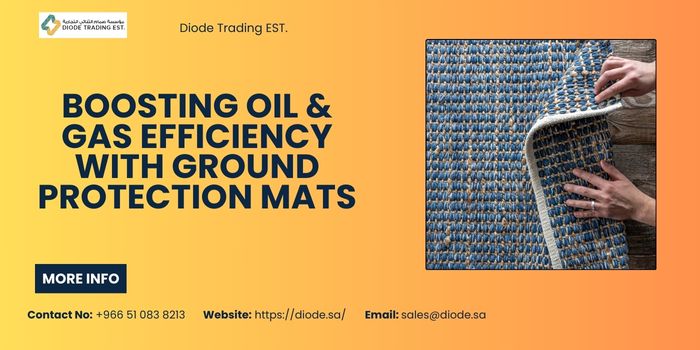Oil and gas operations are often carried out in rugged terrains where heavy machinery must move smoothly and safely. In such scenarios, efficiency isn’t just about speed—it’s also about reducing risks and maintaining ground stability. That’s where working with a reliable
ground protection mats supplier in Saudi Arabia can make all the difference.
Why Oil & Gas Operations Need Ground Protection Mats
Oil and gas sites typically involve heavy rigs, trucks, and cranes operating in challenging environments like sandy deserts, muddy fields, or uneven rocky areas. Without protective support, these machines can sink, slip, or cause long-term environmental damage. Ground protection mats serve as a sturdy platform, distributing weight evenly and preventing soil erosion while also keeping projects on schedule.
Key Benefits of Ground Protection Mats in Energy Projects
Beyond just providing stability, these mats play a critical role in project efficiency and safety. Here are some standout benefits:
- Improved Safety: They reduce the risk of accidents caused by unstable ground or machinery tipping over.
- Environmental Protection: By minimizing soil compaction and erosion, mats help safeguard fragile ecosystems.
- Cost Efficiency: Mats lower downtime from stuck equipment and reduce site restoration expenses.
- Durability: Modern mats are built to withstand extreme weight and weather, ensuring longevity even in harsh desert conditions.
How Ground Protection Mats Drive Efficiency in Oil & Gas
Efficiency in the oil and gas sector often comes down to how quickly and safely projects can be executed. Ground mats speed things up by:
- Reducing Equipment Downtime: Machines don’t waste hours stuck in mud or soft sand.
- Faster Site Setup: Mats create instant access roads and work platforms without costly groundwork.
- Compliance Support: Many environmental regulations demand responsible ground management—these mats help companies stay compliant.
Partnering with the Right Manufacturer Matters
While mats themselves are vital, choosing the right
ground protection mats manufacturer in Saudi Arabia ensures consistent quality and reliable supply. Local expertise also means products are better adapted to the unique environmental challenges of the region, from desert heat to offshore drilling platforms.
Learning from Other Industries
The importance of stability solutions isn’t unique to oil and gas. Lessons can be drawn from construction and commercial sectors as well. For instance, office and industrial projects increasingly explore
How to Enhance Workspace Efficiency with Advanced Flooring Technologies, which highlights how structural support solutions directly influence operational productivity.
Challenges Without Ground Mats
Imagine a drilling project delayed because a 40-ton truck sinks into soft ground. Not only does this stall operations, but it also increases fuel use, requires towing equipment, and risks damaging both land and machinery. These avoidable inefficiencies underline why ground protection mats are becoming a standard in modern oil and gas projects.
FAQs on Ground Protection Mats
1. Why are ground protection mats essential in oil and gas projects?
They provide stability for heavy machinery, reduce environmental impact, and prevent costly downtime on rugged or soft terrain.
2. Can ground protection mats be reused across multiple projects?
Yes. High-quality mats are designed for durability and can withstand repeated use, making them a cost-effective long-term solution.
3. Do mats work in desert conditions like Saudi Arabia?
Absolutely. They are engineered to handle both extreme heat and heavy loads, ensuring safe operations in desert-based oil fields.
4. How do mats support environmental compliance?
By reducing soil damage, erosion, and contamination, they help companies align with environmental regulations and sustainability goals.
Final Thoughts
Ground protection mats may look like simple platforms, but in the high-stakes world of oil and gas, they are vital tools for safety, sustainability, and efficiency. Partnering with a trusted supplier ensures these mats perform their role effectively, keeping projects moving forward without unnecessary delays or risks.


